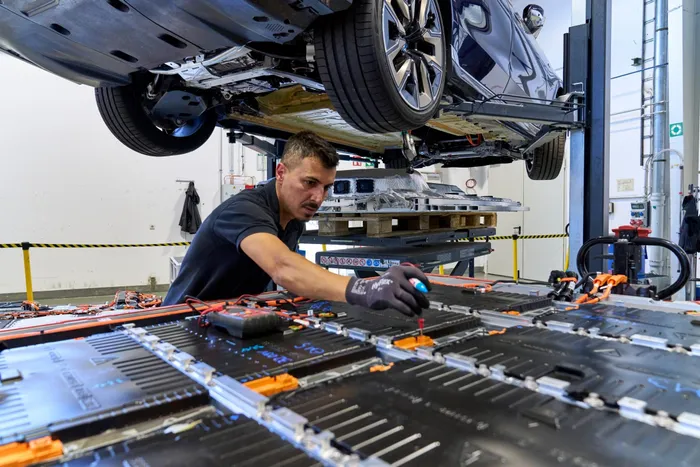Manufacturing activity's decline expected to weigh on third-quarter growth
MANUFACTURING

Data from Statistics South Africa (Stats SA) released on Thursday showed that the largest negative contributors were the basic iron and steel, non-ferrous metal products, and metal products and machinery division.
Image: Supplied
South Africa’s manufacturing sector remained under pressure in August, with output contracting by 1.5% year-on-year, extending July’s revised 1.3% decline. The continued slump means the sector is likely to drag on overall economic growth in the third quarter.
Data from Statistics South Africa (Stats SA) released on Thursday showed that the largest negative contributors were the basic iron and steel, non-ferrous metal products, and metal products and machinery division, which contracted 5.9%, and the food and beverages division, which fell 3.0%.
Stats SA’s Director of Industry Statistics, Nicolai Claassen, said that weaker production in the food and beverage industry was a notable drag on output as it fell by 3% year-on-year.
"On the upside, six divisions grew in August, but not enough to lift the manufacturing industry into positive territory. The motor vehicles, parts and accessories and other transport equipment division registered the highest growth rate, expanding by 4.7% year on year," Claassen said.
On a seasonally adjusted basis, manufacturing output rose 0.4% month-on-month in August, following a revised 0.8% decline in July. Over the three months to August, production increased 1.5% compared to the previous three-month period.
North-West University Business School's Professor Raymond Parsons said the August manufacturing print was disappointing at a time when South Africa urgently needs stronger economic momentum.
“The important manufacturing sector therefore continues to be a ‘lagging’ sector hampering the economic recovery. If taken together with some other recent ambivalent high-frequency data, it also suggests that one reason may be consumer demand is levelling off from its previous steady growth,” he said.
Parsons added that the subdued manufacturing performance underscores the need for targeted policy support, especially in the forthcoming Medium Term Budget Policy Statement in November.
Professor Waldo Krugell, an economist at North-West University, said that the sector’s continued struggles reflect South Africa’s broader competitiveness challenges.
“The cost of doing business is high, from labour to electricity to logistics. On top of that, our manufacturers face very stiff competition, particularly from China, from smelting to car manufacturing. Economists call it "the second China shock" - it is deindustrialisation in many countries due to cheap Chinese exports of almost everything,” he said.
Krugell added that much-needed structural reforms to improve competitiveness have been slow to materialise.
"I expect that manufacturing will keep struggling for some time," he said.
Lara Hodes, Investec economist, noted that August’s manufacturing decline was weaker than expected and coincided with a downturn in business sentiment.
“The seasonally adjusted Absa Purchasing Managers’ index (PMI) slipped in August, moving into contractionary territory with a reading of 49.5,” Hodes said.
She added that four out of 10 manufacturing sub-sectors recorded year-on-year declines, with metals and machinery largely responsible for the overall drop.
“Advance indications provided by September’s PMI release show that while activity picked up at the end of the third quarter, expectations about future business conditions (in six months’ time) fell markedly, which does not bode well for activity going forward, with the full effect of the US’s tariffs not yet felt.”
Efficient Group chief economist, Dawie Roodt, said the figures reflect an economy stuck in a low-growth trap.
“Manufacturing is especially important because manufacturing is where we can potentially create a lot of jobs,” Roodt said.
“But the fact is that South Africa has been de-industrialising for many years. Electricity is a very important contributing reason. But this simply tells me that unemployment may go up even further.”
BUSINESS REPORT